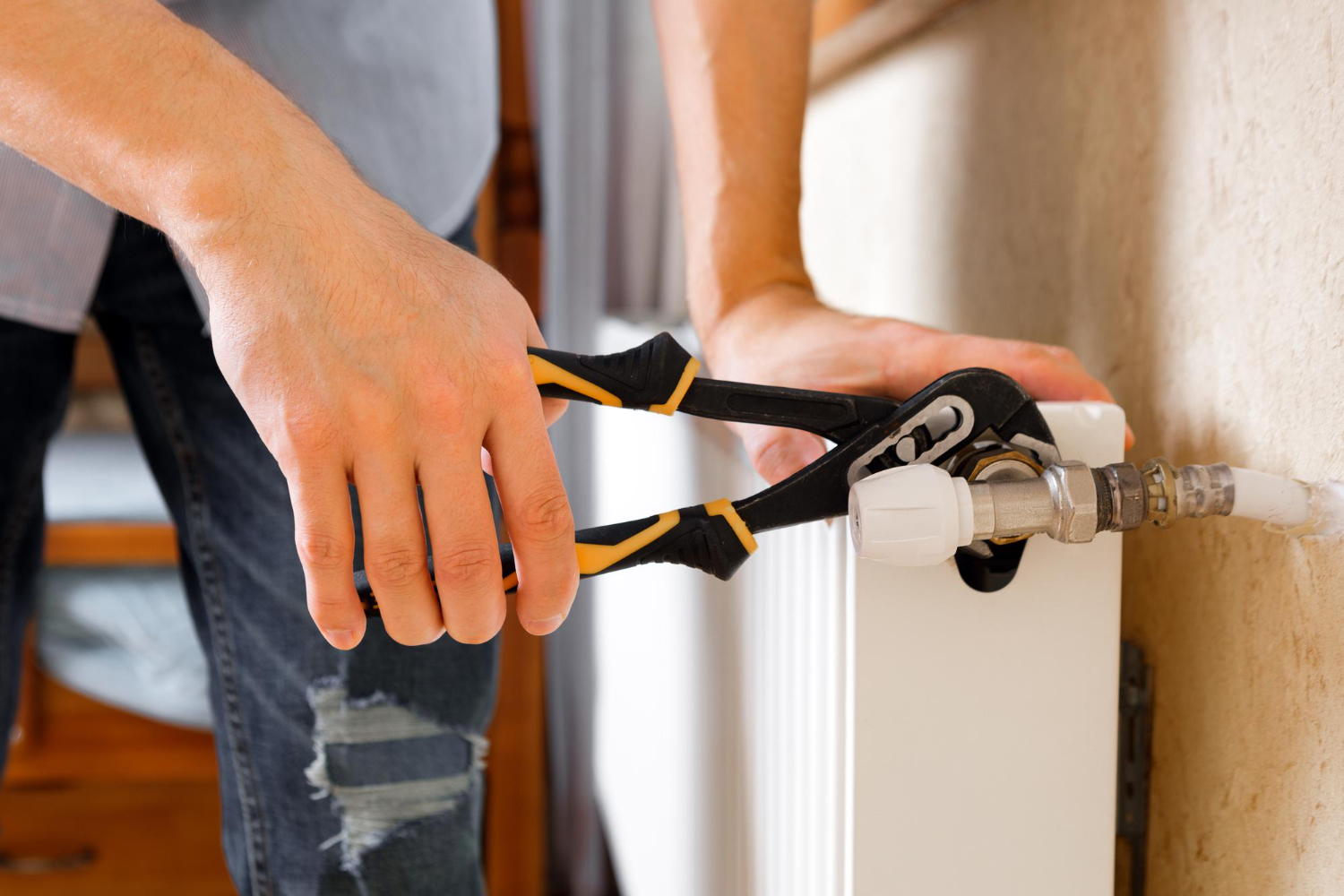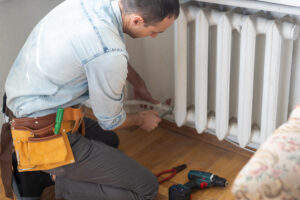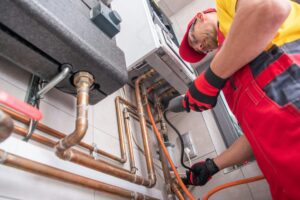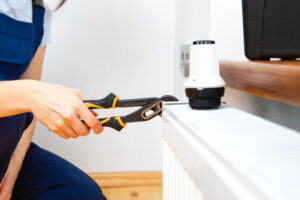
Facing a heating system emergency can be a stressful situation, especially when you rely on your system to keep your home warm and comfortable. Whether it’s a freezing night or a sudden breakdown, acting quickly is crucial. Recognizing what makes an issue an emergency helps in deciding the best course of action. There are certain red flags, like strange odors or complete system shutdowns, that you shouldn’t ignore.
To handle these emergencies effectively, it is important to first ensure your family’s safety. Fast actions such as shutting down the system or moving to a safe area can be pivotal. Once immediate risks are mitigated, you can focus on troubleshooting common issues if you feel comfortable doing so. Simple fixes, like adjusting the thermostat or checking circuit breakers, may solve minor problems.
However, knowing your limits is key. Call in professionals when needed, as they have the expertise to fix complex issues. Choosing the right service for emergency repairs ensures your heating system is back serving your needs without unnecessary delays. This approach guarantees your home’s comfort and safety are restored swiftly.
Identifying Heating System Emergencies
When your heating system acts up, knowing what constitutes an emergency is essential. Emergencies can include a complete system failure during frigid weather or detecting the dangerous smell of gas, which could indicate a leak. Another critical situation is when the system makes unusual noises or cycles on and off rapidly, signaling possible mechanical failure. Any of these could escalate into more significant issues if ignored, compromising both safety and comfort.
Quick action is crucial in these scenarios. A malfunctioning heating system not only leaves your home cold, but can also pose serious risks, such as carbon monoxide leaks or electrical hazards. When a system completely shuts down in extreme weather, it can lead to water pipes freezing and bursting, causing extensive water damage. Swiftly identifying and responding to these issues can prevent the situation from worsening and reduce repair costs.
The importance of acting quickly cannot be overstated. While it may be tempting to wait and see if the problem resolves itself, this approach can lead to greater trouble down the line. Recognizing potential emergencies early and responding promptly is the best way to safeguard your home and keep your heating system functional and safe.
Immediate Safety Precautions
Safety is paramount when facing a heating emergency. The first step is assessing the situation carefully. If you detect a strange odor, like rotten eggs, it could indicate a natural gas leak. In such cases, evacuate the area immediately and call your utility company from a safe location. Do not attempt to fix the leak yourself or use any electrical devices that could spark inside your home.
For other emergencies, such as minor leaks or electrical issues, shut off the heating system. Locate the system’s main power switch or circuit breaker and turn it off to prevent any further damage or risk of electrical fires. It’s also wise to familiarize yourself with your system’s emergency shut-off features ahead of time so you can act quickly.
One crucial safety check is looking for signs of electrical faults, especially if you notice flickering lights or tripping breakers. These are signals that your system could be overloaded or incorrectly wired. Electrical safety should never be taken lightly, as these faults pose a real danger of fire.
By taking these immediate safety precautions, you can protect both your home and your loved ones while you plan your next steps to getting your heating system back in action. Remember, safety first!
Troubleshooting Common Issues
When your heating system acts up, a few basic troubleshooting steps might resolve the problem without the need for professional help. One common issue is a malfunctioning thermostat, which could simply mean the settings are incorrect or the batteries need replacing. Check to ensure the thermostat is set to the desired temperature and that it’s in heating mode.
Another typical problem involves the circuit breaker. If the heat stops working, see if the breaker has tripped. Resetting the breaker might restore power to the heating system. However, if it trips repeatedly, it could signal a more serious electrical problem requiring professional attention.
Sometimes, airflow issues can cause your system to underperform. Ensure that vents and filters are clean and unobstructed. Dirty filters can restrict airflow, causing the system to overheat and shut down. Replacing filters regularly helps maintain good performance.
These simple checks may solve some issues on the spot, but recognize when to call in an expert. If your system continues to malfunction after taking these steps, or if you encounter more complex problems, it’s time to reach out to a professional for a thorough assessment and repair.
Contacting Professional Repair Services
Once you’ve identified a heating system issue that surpasses your troubleshooting skills, it’s crucial to contact a professional repair service. Hiring the right expert ensures the job is done efficiently and safely. Start by researching reliable services in your area. Look for technicians with strong reputations, positive customer reviews, and necessary certifications.
Before you call, be prepared with information about your system. Know the make and model of your heater and have a record of any maintenance performed. Describe the problem and what troubleshooting steps you’ve already taken to save time and allow the technician to come better prepared.
Choosing a service that offers emergency repairs is also beneficial. They can respond quickly to urgent situations, restoring your home’s comfort faster. Professional services have the expertise, tools, and parts needed to tackle a wide range of problems, minimizing downtime and preventing future issues.
With the right professional help, you can ensure that your heating system is repaired promptly and correctly, giving you peace of mind and a warm home.
Conclusion
In an emergency heating situation, knowing the right steps to take can make all the difference. From identifying potential emergencies to executing immediate safety measures and troubleshooting common problems, being prepared helps you handle these tough situations with greater ease. Once immediate safety is secured and preliminary troubleshooting is done, engaging a professional ensures thorough repairs.
Having a trusted partner like My Jockey ensures that you have expert help just a call away. Our team is dedicated to keeping your heating systems operational, ensuring your home stays warm and safe. If you’re encountering heating troubles, contact My Jockey for swift and reliable emergency heating repair services. We’re here to bring comfort back to your home when you need it most.




